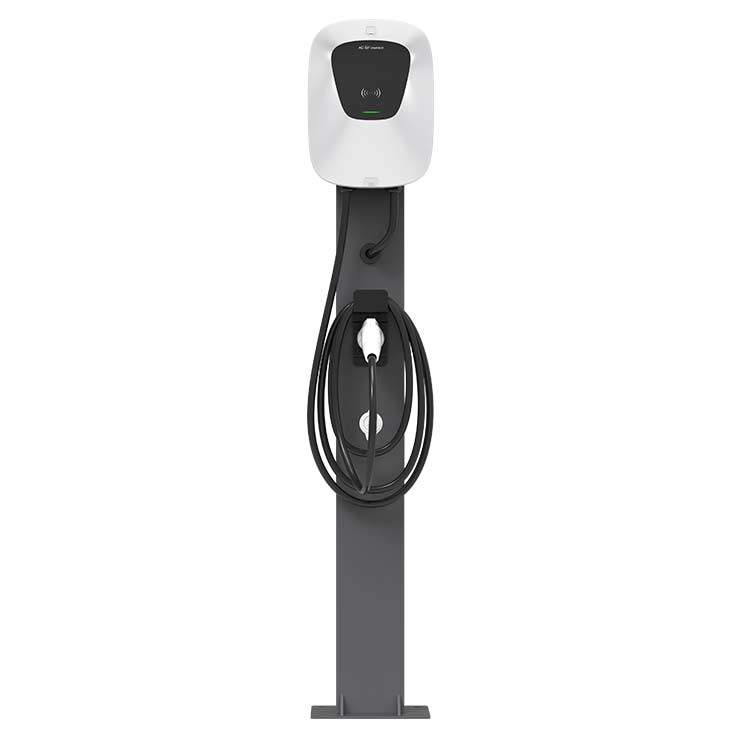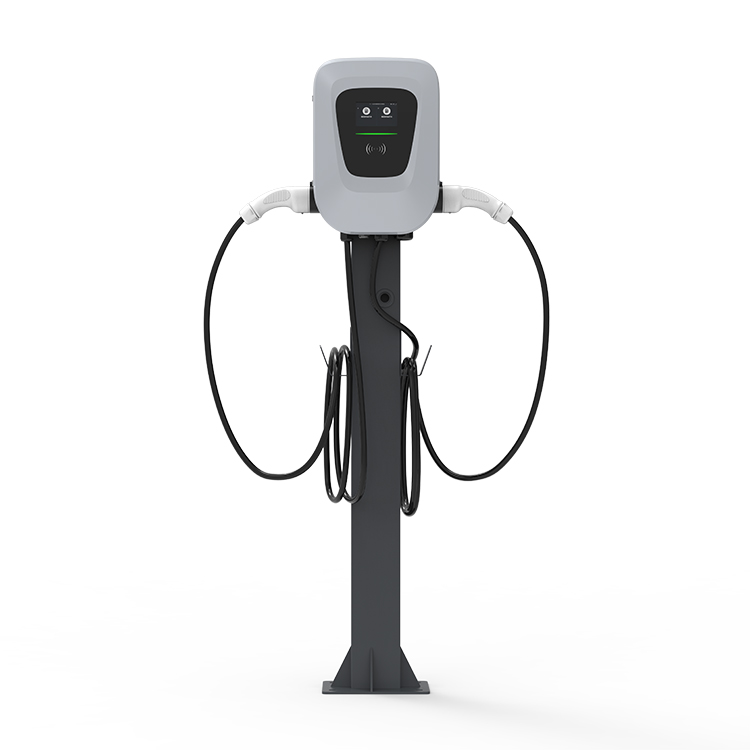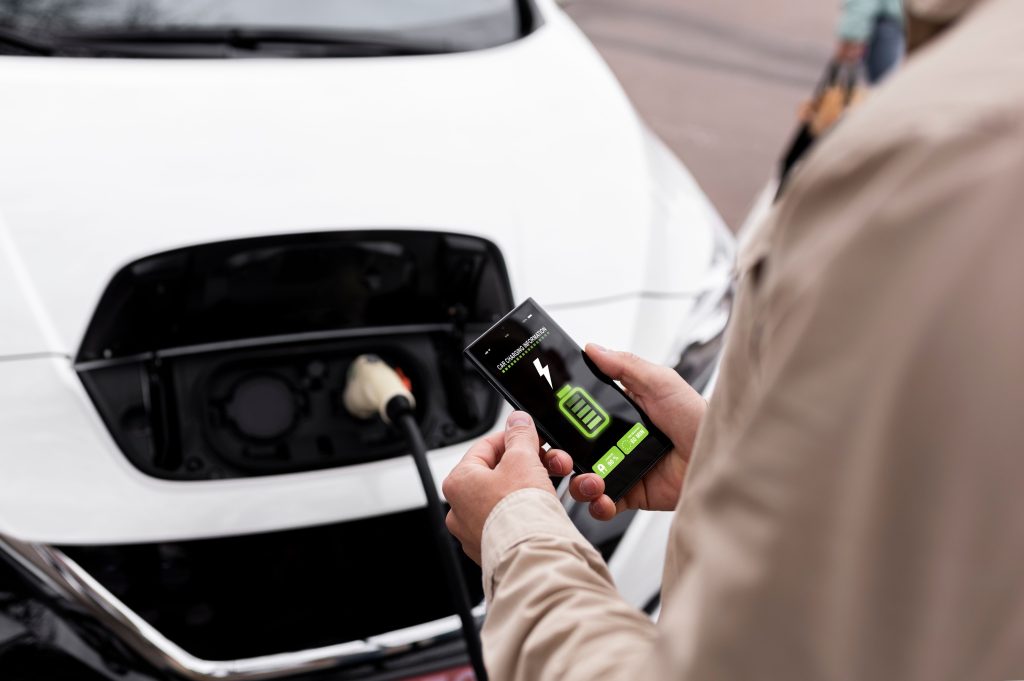
Products
Fast, Reliable, Everywhere

Solutions
Efficient, Innovative EV Charging Solutions.
News
We are committed to the innovation and application of EV charging.
Choosing the right AC EV Charger for your home is crucial in today's era of electric mobility. As an expert in AC EV Charger solutions, I'll guide you through the essential factors to consider. At Pilot x Piwin, we offer a range including the versatile AC EV Charger for Home–Level 2 (3.5KW to 22KW) and the efficient Type 2 Plug EV Charger (7KW/11KW/22KW AC). Join us as we explore how these solutions can enhance your electric vehicle experience.
Basic Overview of AC EV ChargersAC EV Chargers, or Alternating Current Electric Vehicle Chargers, play a pivotal role in the ecosystem of electric mobility, providing essential infrastructure for charging electric vehicles (EVs) at home. Understanding the fundamentals of AC EV Chargers is crucial for making informed decisions when selecting the right charger for residential use.
AC EV Chargers are devices designed to convert AC electricity from a home's power supply into the DC electricity needed to charge an electric vehicle's battery. They come in various types and power levels to accommodate different charging speeds and vehicle compatibility.
Typically used with standard household outlets (120V AC), offering slower charging rates suitable for overnight charging.
Pilot x Piwin offers a versatile range of EV Chargers for Home – Level 2 (3.5KW to 22KW Electric Car Charging Station) that support moderate to high power outputs, making them ideal for faster charging at home.

Pilot x Piwin provides efficient Type 2 Plug EV Chargers, offering options from 7KW to 22KW. These chargers are compatible with Type 2 connectors and are designed for seamless integration into residential settings, delivering flexibility and efficiency in home EV charging solutions.

AC EV Chargers operate by converting AC power from the grid into the suitable DC voltage and current needed by an electric vehicle's battery system. They incorporate safety features and protocols to ensure efficient charging while protecting both the vehicle and the charging infrastructure.
This basic overview sets the foundation for understanding AC EV Chargers, emphasizing the importance of choosing the right charger tailored to individual needs and vehicle specifications. For more detailed information, continue reading our comprehensive guide to selecting the ideal AC EV Charger for your home.
Choosing an AC EV Charger for home use involves several critical considerations to ensure optimal performance and compatibility with your electric vehicle (EV). As an expert in the field of AC EV Chargers, I'll walk you through these essential factors. Join me as we delve into what you need to know to select the right charger for your residential charging needs.
Understanding your home charging needs is crucial when selecting an AC EV Charger that fits your lifestyle and electric vehicle (EV) requirements. As an expert in AC EV Charger solutions, I'll explore the key factors that influence these needs, helping you make an informed decision.
1.Daily Driving Habits
Assessing your daily driving habits is the first step in determining your home charging needs. Consider:
2.Vehicle Compatibility
Different EV models have varying battery capacities and charging capabilities. Factors to consider include:
3.Home Electrical Infrastructure
Assess your home's electrical capacity to ensure it can support the selected AC EV Charger:
4.Cost Considerations
Evaluate the costs associated with purchasing and installing an AC EV Charger:
By analyzing these key factors, you can effectively determine your home charging needs and prepare to select an AC EV Charger that aligns with your EV usage patterns, home infrastructure, and budget. Stay tuned as we further explore how to choose the ideal AC EV Charger for your home in our comprehensive guide.
Choosing the appropriate power level for your home AC EV Charger is crucial to ensure efficient and convenient charging for your electric vehicle (EV). As a seasoned expert in the field of AC EV Chargers, I'll guide you through the considerations to help you determine the ideal power level for your specific needs.
1.Understanding Power Levels
AC EV Chargers for home use typically come in different power outputs, measured in kilowatts (KW). The power level directly impacts the charging speed and compatibility with your EV. Pilot x Piwin offers two main options:
2.Determining Your Charging Need
To select the right power level, consider the following factors:
3.Practical Considerations
Evaluate practical aspects related to your home and lifestyle:
By carefully assessing your EV's charging requirements and considering factors like battery capacity, daily driving habits, and home infrastructure, you can confidently select the right power level for your home AC EV Charger. Stay tuned as we further explore how to make the best choice in our comprehensive guide.
Installing an AC EV Charger at home involves several key considerations to ensure safe and efficient operation. As an expert in AC EV Charger solutions, I'll guide you through the essential installation requirements for selecting and setting up your charger.
1.Electrical Panel Capacity
Before installing an AC EV Charger, assess your home's electrical panel capacity:
2.Location and Mounting
Choose an appropriate location for installing your AC EV Charger:
3.Power Supply
Ensure a dedicated power supply for the AC EV Charger:
4.Permit and Code Compliance
Comply with local building codes and regulations:
5.Installation Process
Follow these general steps for installing an AC EV Charger:
By understanding and meeting these installation requirements, you can confidently install an AC EV Charger at home, enhancing convenience and efficiency for charging your electric vehicle. Stay tuned as we further explore additional aspects of choosing the ideal AC EV Charger in our comprehensive guide.
When choosing and installing an AC EV Charger at home, space considerations play a crucial role in ensuring convenience, accessibility, and safety. As an expert in AC EV Charger solutions, I'll provide insights into the key factors to consider regarding space requirements for your charger installation.
1.Location Selection
Selecting the right location for your AC EV Charger is essential:
2.Mounting and Clearance
Ensure proper mounting and adequate clearance for the charger:
3.Accessibility
Consider accessibility factors when planning the installation:
4.Electrical and Structural Requirements
Assess electrical and structural needs for installing the AC EV Charger:
By carefully considering space requirements and selecting an optimal location for your AC EV Charger installation, you can maximize convenience and functionality while ensuring compliance with safety and operational standards.
Selecting the perfect AC EV Charger for your home involves considering several critical factors that align with your electric vehicle (EV) usage, home infrastructure, and personal preferences. As an expert in AC EV Charger solutions, I'll guide you through the process of making an informed decision.

Before choosing an AC EV Charger, assess your specific requirements:
Pilot x Piwin offers two robust home charging solutions:
Select a charger that meets your desired charging speed:
Ensure compatibility with your home's electrical system:
Evaluate the overall cost of ownership:
Prioritize safety and reliability:
By considering these factors and Pilot x Piwin's versatile range of home AC EV Chargers, you can confidently select the right charger that fits your lifestyle, driving habits, and home setup.
Choosing a home AC EV Charger involves assessing various economic factors to ensure long-term affordability and efficiency. Here’s a detailed analysis:
When considering an AC EV Charger for home use, the initial purchase cost is a critical factor. Pilot x Piwin offers two primary options tailored to different user needs:
| Product Name | Power Output Range | Typical Purchase Cost Range (USD) |
| EV Charger for Home – Level 2 | 3.5KW to 22KW | $700 - $1500 |
| Type 2 Plug EV Charger – AC Home Charging Station | 7KW/11KW/22KW | $800 - $1800 |
Installation costs vary based on electrical requirements and home setup. Considerations include:
Evaluate the ongoing operational expenses associated with using an AC EV Charger:
Assessing the energy efficiency of an AC EV Charger is crucial for optimizing operational costs:
By analyzing these economic factors and considering Pilot x Piwin's range of home AC EV Chargers, you can make a well-informed decision that aligns with your budget and sustainability goals. Stay tuned for more insights on selecting the ideal AC EV Charger for your home in our comprehensive guide.
In conclusion, selecting the right AC EV Charger for your home is a pivotal decision that aligns with your lifestyle, vehicle requirements, and long-term sustainability goals. As we've explored in this guide, understanding key factors such as charging speed, power output, installation requirements, and cost considerations is essential.
By considering these products, you can enhance your EV charging experience with advanced technology and robust reliability. Whether you prioritize speed, efficiency, or cost-effectiveness, our chargers are engineered to meet your expectations.
As the electric vehicle landscape continues to evolve, choosing a reliable AC EV Charger is not just about convenience—it's about investing in a sustainable future. For more information on our AC EV Chargers and personalized recommendations, visit our website or contact us directly. Let's empower your home with efficient and eco-friendly charging solutions from Pilot x Piwin.
When selecting an AC EV charger for home use, consider your daily driving habits, vehicle compatibility, home's electrical infrastructure, installation requirements, and long-term operational costs. These factors ensure you choose a charger that meets your needs efficiently.
The power level of the AC EV charger should match your vehicle's charging capabilities and your daily driving needs. Our products, such as the EV Charger for Home – Level 2 (3.5KW to 22KW) and Type 2 Plug EV Charger – AC Home Charging Station (7KW/11KW/22KW), offer a range of options to suit different electric vehicle models and charging requirements.
Installation typically requires ensuring your home's electrical panel can support the charger's power requirements, potential upgrades to the panel, and professional installation by certified electricians. This ensures safety and optimal performance of the charger.
Installation costs vary based on electrical panel upgrades and labor fees. For accurate pricing, it's recommended to consult with a certified electrician who can assess your home's specific requirements.
